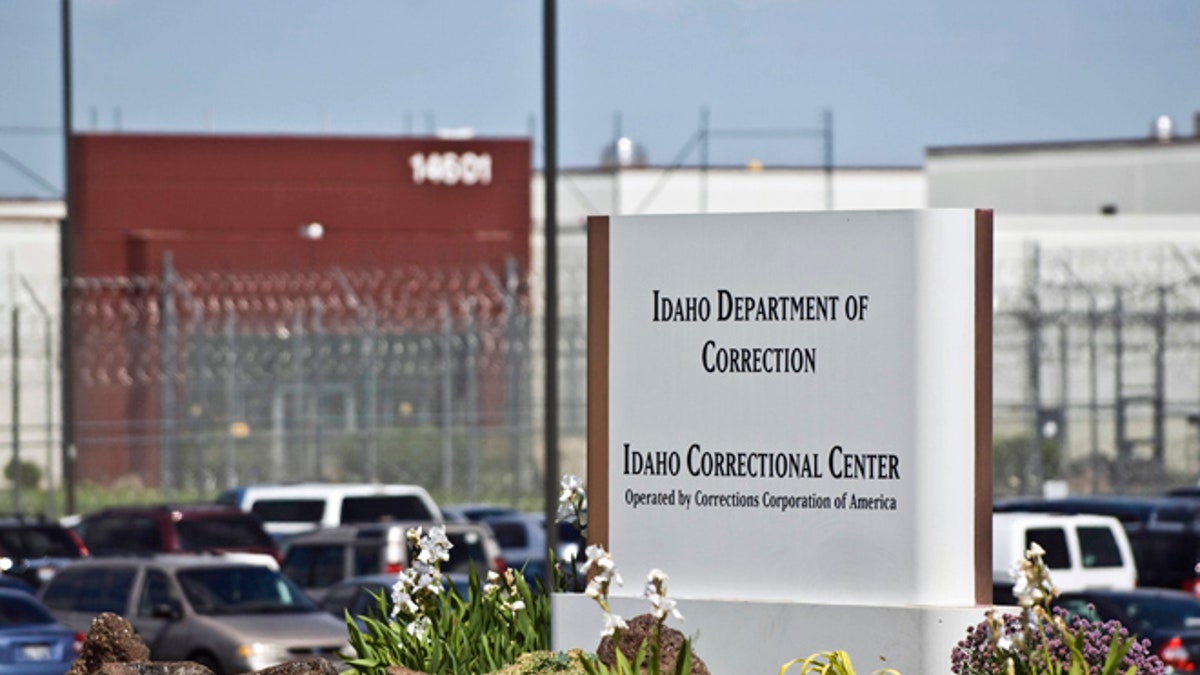
FILE -- The Idaho Correctional Center, south of Boise, Idaho. (AP Photo/Charlie Litchfield)
As a newly unified government has begun tackling a range of health care, tax, and regulatory reforms, Conservatives are continuing to champion another area in need of legislative updates for the twenty-first century: criminal justice reform.
Republicans have ever been defenders of fiscal conservatism, strong court systems, and basic human dignity, yet our support for thoughtful criminal justice reform efforts is often under-reported.
In one of the clearest examples of our bipartisan leadership in criminal justice reform, I, Doug Collins, have been proud to work with colleagues on both sides of the aisle, including my fellow Congressman Bobby Scott, to pass reform legislation, including the Comprehensive Justice and Mental Health Act.
I introduced this legislation to strengthen our mental health system at its intersection with criminal justice, and it became part of the landmark 21st Century Cures Act, which former President Obama signed into law this December.
Conservatives understand the balance between keeping our communities safe from people who are, in a word, scary and remembering that the American narrative has always made room for new beginnings. Criminal justice reform is, at its heart, rooted in our confidence in redemption and that giving second chances to those who deserve them yields benefits across society. One of those benefits is, of course, saving taxpayer dollars.
When we review the state of our criminal justice system, we realize that 95 percent of prisoners will eventually be released from prison, and, with a recidivism rate of approximately 50 percent for federal offenders, it is clear that the status quo is not working. Instead of continuing unsustainable practices that endanger our communities and waste resources, we must strengthen opportunities for prisoners to re-enter society without returning to prison.
Such criminal justice reforms address all aspects of the prison pipeline—including sentencing reforms, re-entry reforms and rehabilitation measures—and have made our communities safer, saved taxpayer dollars and allowed those who have paid their debts to society an opportunity to break the cycle of crime and focus on providing for their families and contributing to our communities.
As conservatives in Congress work to make our justice laws smarter and stronger, FreedomWorks has labored alongside lawmakers and groups that value liberty to prioritize collaboration on further criminal justice reform efforts.
With successes at the state level—most recently in Ohio, where a civil asset forfeiture bill just passed the state legislature with strong support—FreedomWorks is applying proven strategies to help pass reform at the federal level as well.
In 2016, bills FreedomWorks specifically championed in the House, such as the Recidivism Risk Reduction Act, the Sentencing Reform Act, the Due Process Act and the Criminal Code Improvement Act, all successfully passed the Judiciary Committee with bipartisan approval. As a member of that committee, I, Doug Collins, understand that we have work to do in passing these reforms into law and look forward to revisiting these opportunities in the 115th Congress.
Thoughtful criminal justice reform also means that Republicans’ commitment to standing with law enforcement is unwavering. As the son of a Georgia state trooper, I’m proud that my state and other so-called “red” states are leading the way in sustainable criminal justice reform.
For example, the work of Governor Nathan Deal and state lawmakers led Georgia to a tremendous reduction in its prison population, and the Governor continues to work with the state legislature to enact reforms to further reduce recidivism.
Some of the most impactful initiatives include mandatory minimum sentencing reforms, offering programs that help inmates achieve a high school diploma, “banning the box” to promote employment opportunities and sweeping juvenile justice reforms.
Successful mental health reforms in correctional institutions and innovative law enforcement training across the state also inspired Congressman Collins’ federal legislation.
States like South Carolina, Texas and Oklahoma have joined Georgia in enacting reforms that are returning offenders to their communities as productive members of society. Not only have these reforms saved taxpayers money, but the states that have enacted reforms have also seen their crime rates decline.
For example, Texas, after an initial investment in drug court diversionary efforts, saw a decline in its prison populations of 14 percent and a drop in crime rates of 29 percent. Now Texas has its lowest crime rate since 1968, and recidivism is 7 percent less than it was before the 2007 reform effort.
Realizing this, Republicans and Democrats on the House Judiciary Committee continue to collaborate on their criminal justice reform initiative. As Chairman Bob Goodlatte explains, “Criminal justice reform is not a liberal or conservative issue; it’s an American issue.”
While congressional Republicans have been able to pursue productive reforms through bipartisan collaboration, they are also eager for the opportunity to work with a new administration that has made helping our cities—often the greatest beneficiaries of criminal justice reform efforts—a national priority.
We are part of a burgeoning movement that is overcoming partisanship with evidence-based policies to shape criminal justice reform, and we will not stop advocating for changes that protect our law enforcement officers and communities while providing offenders with a smarter path forward.
